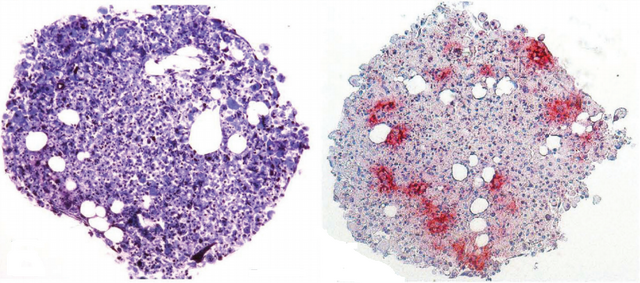The 2024 Nobel Prize in Physiology or Medicine has been awarded to American biologists Victor Ambros and Gary Ruvkun for their transformative discovery of microRNA, a critical element in the regulation of gene activity. This groundbreaking research has provided new insights into the mechanisms that govern how genes control the formation and specialization of different cell types within the human body.
Announced by the Nobel Committee at the Karolinska Institute in Stockholm, Sweden, the prestigious honor recognizes the work of Ambros, a professor at the University of Massachusetts Medical School, and Ruvkun, a genetics professor at Harvard Medical School and a researcher at Massachusetts General Hospital. The scientists will equally share the prize's 11 million Swedish kronor ($1 million) reward.
The Nobel Committee praised Ambros and Ruvkun's research for unveiling "an entirely new dimension to gene regulation" through the discovery of microRNA. These small RNA molecules, first identified in the early 1990s, play a fundamental role in controlling gene expression by determining which proteins cells produce-a process crucial for cellular differentiation and development.
This year’s medicine laureates Victor Ambros and Gary Ruvkun studied a relatively unassuming 1 mm long roundworm, C. elegans.
Despite its small size, C. elegans possesses many specialised cell types such as nerve and muscle cells also found in larger, more complex animals,… pic.twitter.com/sUN7HxbzhA — The Nobel Prize (@NobelPrize) October 7, 2024
"Gene regulation by microRNA has revolutionized our understanding of how cells function and how they adapt to their environment," said Olle Kämpe, vice-chair of the Nobel Committee for Physiology or Medicine. "This discovery has significant implications for developmental biology and our understanding of diseases such as cancer."
The initial discovery of microRNA dates back to 1993, when Ambros, studying the tiny roundworm Caenorhabditis elegans, identified a previously unknown mechanism that influenced the worm's development. Although this breakthrough was initially thought to be an oddity unique to the species, Ruvkun's subsequent research revealed the broader relevance of microRNAs across different organisms, including humans. This work demonstrated that microRNAs are not merely a peculiarity but a fundamental component of genetic regulation present throughout the animal kingdom.
Their collective efforts helped explain how cells with identical DNA sequences can develop into diverse types, such as muscle or nerve cells, by selectively activating or deactivating specific genes. "The information stored within our chromosomes is like an instruction manual for all cells in our body," the Nobel Committee explained. "MicroRNAs act as key regulators, ensuring that only the correct set of instructions is followed for each cell type."
The research carried out by Ambros and Ruvkun has not only advanced the understanding of cellular biology but also opened new avenues for medical science. Scientists are now exploring microRNAs' potential in diagnosing and treating various diseases, including cancer. "MicroRNAs offer diagnostic and therapeutic opportunities," said David Pendlebury, head of research analysis at Clarivate's Institute for Scientific Information. "Clinical trials are currently underway to utilize microRNA profiling for patient prognosis and treatment responses."
Despite the initial skepticism faced by Ambros' discovery, the field of microRNA research has since exploded. What was once considered a niche area has now led to the identification of thousands of different microRNAs across multiple species, significantly impacting our understanding of gene regulation and disease mechanisms.
The recognition of Ambros and Ruvkun's work has been long anticipated within the scientific community. Their achievements follow in the footsteps of other transformative contributions to biomedical research, such as the mRNA technology that played a vital role in developing vaccines against COVID-19, a breakthrough that earned the 2023 Nobel Prize in Medicine for Katalin Karikó and Drew Weissman.
As Ambros and Ruvkun's discoveries continue to shape the future of genetic research, other notable scientists like Professor Venki Ramakrishnan, a Nobel laureate in chemistry, expressed his appreciation for their contributions. "This is a very well-deserved and long-awaited prize," Ramakrishnan said. "Their work has opened up an entirely new field of biology with broad implications."
However, the announcement was not without its controversies. Some scientists noted the exclusion of David Baulcombe, whose parallel discoveries in plant biology played a similar role in understanding gene regulation through small RNAs. Baulcombe's research previously earned him a Lasker Award alongside Ambros and Ruvkun, making his omission from the Nobel list a topic of discussion.
Amidst the excitement of the award, the Nobel Committee's secretary, Thomas Perlmann, recounted his efforts to inform the winners. He reached Ruvkun early on Monday morning, describing the scientist's reaction as "tired but soon very excited and happy." Despite attempts to contact Ambros, Perlmann was only able to leave a message, hoping to speak with the newly crowned laureate soon.






